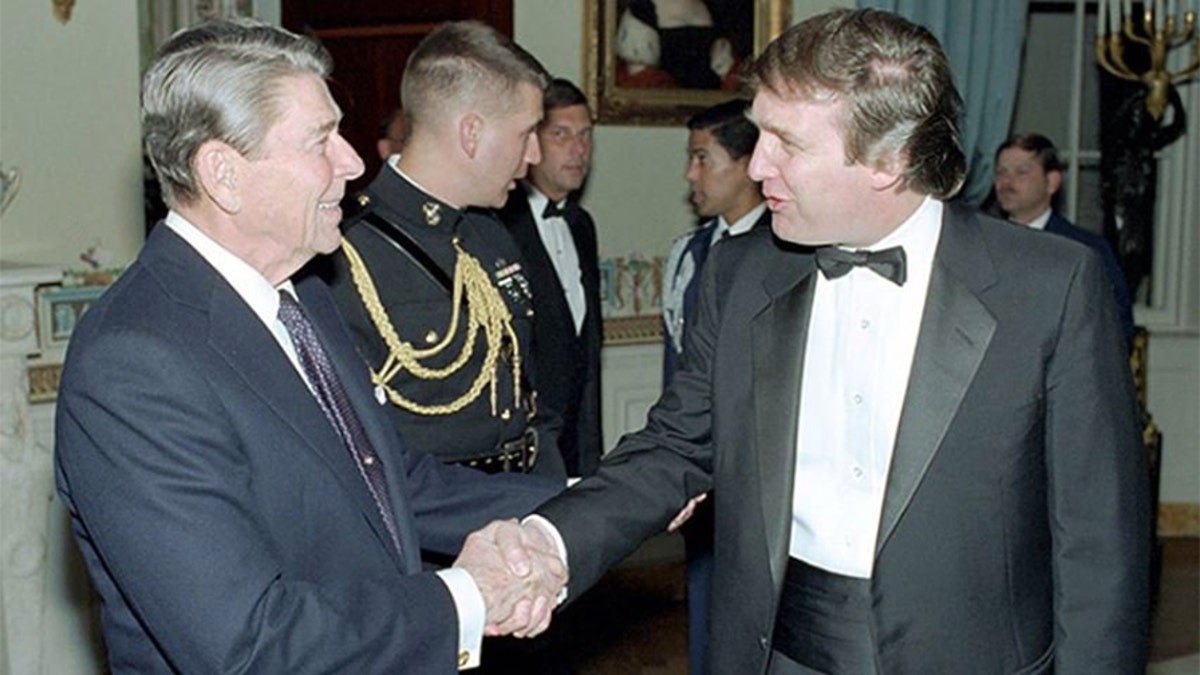
(Courtesy Ronald Reagan Library)
Thirty-one years ago today, while I was working in the White House, President Ronald Reagan boldly declared sanctions that prohibited all Iranian imports and restricted the export of 14 categories of U.S. products. Did this move face resistance? Sure.
There were plenty of naysayers who, for their own financial and ideological purposes, wanted to see a quick sunsetting of Reagan’s sanctions. But Reagan was unphased by their critiques.
Never wavering from his bold October 26th, 1987 declaration that the sanctions would “remain in place so long as Iran persists in its aggressive disregard for the most fundamental norms of international conduct,” he knew that short-term economic pain was an acceptable price to pay for the long-term stability of open markets and our national security interests.
And, as we now know, his policy of peace through strength worked, diminishing the Iranian regime’s ability to access the capital it needed to inflict terror on America and its allies.
Unfortunately, many of these gains were reversed thanks to President Barack Obama’s signing of the Iran nuclear agreement. While setting the stage for Iran’s economic recovery by giving it access to oil revenue valued at a quarter of its annual GDP, the agreement also led Iran to create more pro-regime militias and acquire tens of billions of dollars worth of new weapons.
Recognizing the futility of President Obama’s appeasement strategy, President Donald Trump resurrected Reagan’s Iran agenda. He tore up the Iran deal and reimposed tough economic sanctions with the intention of forcing the Iranian government to shut down its nuclear enrichment programs, curb its weapons program, and end its support for brutal governments and uprisings in the Middle East.
As during the Reagan administration, President Trump’s much-needed reversal has already produced quick, efficient results.
Bloomberg reported that the country’s economy is now “nearing a crisis” – one that most observers suspect will force the country to make concessions soon. Even The New York Times declared Trump’s sanctions are working.
And yet, despite the success of Trump’s deterrents, special interests are working to weaken them just as they attempted to do during the Reagan years.
Numerous recent articles have suggested that the sanctions are harming the American people and damaging our relationship with European allies. Last week, Foreign Policy Magazine argued that Washington and Brussels should come to a compromise solution because “tensions over Iran sanctions are already having adverse economic effects in both the United States and Europe” and “consumers will end up paying more” for oil as a result of Trump’s sanctions.
The leadership of the European Union has gone so far as to tell European corporations to ignore the U.S. policy, with Iranian president Hassan Rouhani heaping praise on the EU for its effort to push America to change the status quo.
Now, President Trump has to make a choice: Stand firm like Reagan did 31 years ago and forcibly declare that the sanctions will remain in place; or cave to the wishes of the European Union and permit contractors such as Airbus and Siemens (two companies that have a history of skirting critical defense protection measures) to continue doing business with the rogue nation.
Which option will make the most sense for our national security? The Wall Street Journal suggests the former, writing that “Washington must intensify the pressure on the mullahs as Reagan did on the communists. Otherwise, a lethal nuclear Iran is less than a decade away.”
Is President Trump on the same page? We will soon find out. But here’s hoping that he will make The Gipper – and the national security community at large – proud.








































